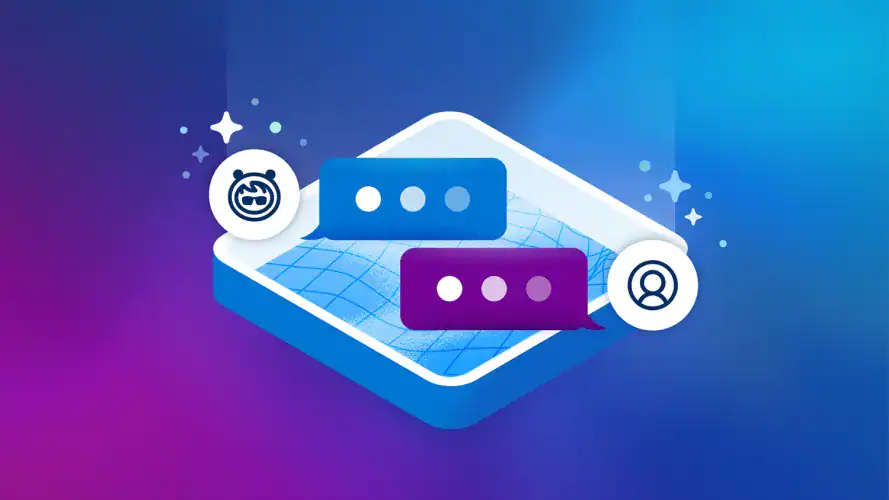The path to becoming a proficient real estate agent involves much more than studying regulations and passing licensing exams. Developing practical skills that mirror real-world situations is essential. To bridge the gap between theoretical knowledge and hands-on experience, many training programs now integrate Multiple Listing Service (MLS) sandbox environments. These simulated platforms offer trainee agents a safe space to explore MLS functionalities, make mistakes, and refine their approach without adverse consequences. This article explores the concept of MLS sandbox environments, their benefits for novice real estate professionals, and ways to maximize their potential before entering the competitive marketplace.
What Is an MLS Sandbox Environment?
An MLS sandbox environment refers to a controlled, simulated setting that replicates the structure and features of an actual Multiple Listing Service database. It provides trainee agents with a replica of the tools, interfaces, and data fields used by real estate professionals daily. Within this virtual domain, learners can practice creating property listings, navigating search functions, updating information, and collaborating with other agents as if working in a live MLS system.
Unlike traditional study methods or passive tutorials, sandbox platforms encourage active engagement. Trainees gain experiential knowledge by performing routine tasks in a risk-free environment. Errors do not affect real listings or clients, making the sandbox an invaluable component of contemporary real estate education.
The Importance of Hands-On Practice in Real Estate Training
The real estate profession demands a strong command of multiple technical and interpersonal skills. Understanding MLS mechanics is fundamental since it plays a central role in marketing properties and coordinating transactions. However, textual descriptions and lecture notes alone cannot fully convey the nuances encountered when using MLS software.
By interacting with MLS tools first-hand, trainee agents demonstrate their ability to enter accurate data, comply with timing standards, and troubleshoot common issues. This experiential learning increases confidence and reduces anxiety upon exposure to live systems, whether at brokerage firms or third-party platforms.
Moreover, hands-on experience fosters familiarity with MLS rules, such as deadlines for listing updates, data privacy protocols, and ethical marketing practices. Repeated practical application solidifies this knowledge, transforming theoretical principles into second nature. Such preparation not only benefits licensing exams but also establishes the groundwork for effective on-the-job performance.
How MLS Sandbox Environments Work
Typically, MLS sandbox systems mirror the user interface of actual MLS platforms but use fictitious property data and agent profiles to prevent confusion with active listings. Trainees receive credentials granting them access to the environment where they can navigate menus, enter listings, and respond to search queries just as they would in a real-world setting.
Sometimes, these sandboxes integrate automated feedback mechanisms to help learners identify errors or areas for improvement. For example, if an agent inputs incomplete or inconsistent listing details, the system might flag these omissions or suggest corrections. This immediate response supports iterative learning and encourages higher accuracy.
Some training programs also incorporate role-playing simulations, where trainees assume agent roles within the sandbox to negotiate commissions, respond to client inquiries, or manage compliance scenarios. By replicating interpersonal dynamics alongside technical tasks, these exercises prepare candidates holistically for their professional responsibilities.

Benefits for Trainee Agents
The advantages of MLS sandbox environments extend far beyond mere familiarity with software. One notable benefit is the cultivation of practical MLS literacy—understanding how to harness MLS features effectively to match client needs and market conditions.
Because mistakes in real MLS databases can lead to legal issues or lost income, sandbox environments shield beginners from costly errors. Trainee agents may experiment freely with listing formats, pricing strategies, and data search filters, gaining insight into how different configurations affect property visibility and buyer interest.
Additionally, sandboxes promote self-paced learning. Individuals can return to practice sessions as often as needed, reinforcing weak areas without pressure. This flexibility accommodates diverse learning styles and schedules, making real estate training more accessible and personalized.
For brokers and educators, utilizing MLS sandbox platforms streamlines the onboarding process. Trainers can track progress, identify knowledge gaps, and tailor guidance accordingly. This proactive approach boosts overall agent competency and satisfaction.
Addressing Common Challenges in MLS Proficiency
New agents frequently face difficulties understanding MLS nuances such as accurate data entry, managing listing statuses, and timing contractual obligations properly. Such complexities can overwhelm those inexperienced with digital tools.
MLS sandbox environments tackle these issues head-on by providing immersive practice opportunities. Trainees encounter typical scenarios—like withdrawing listings, updating sales prices, or handling expired listings—in a sequential manner, allowing them to build familiarity gradually.
By repeating realistic workflows within the sandbox, agents internalize standard operating procedures, reducing the learning curve encountered in actual brokerage activities. This experience helps prevent common pitfalls, such as misrepresenting properties or violating MLS participation agreements.
Moreover, sandbox simulations can highlight ethical considerations implicitly embedded in MLS use. For instance, understanding confidentiality when handling sensitive client information or respecting cooperation clauses between brokers becomes clearer through scenario-based exercises.
Maximizing the Value of MLS Sandboxes in Training
To fully benefit from MLS sandbox environments, trainee agents should approach them as integral parts of their education rather than supplementary tools. Dedicating regular, focused time to explore various functions ensures comprehensive skill development.
Engaging with peer groups or mentors enhances learning outcomes. Collaborative sessions foster discussion around best practices and alternative methods, deepening understanding beyond individual experimentation.
Setting personal goals aligned with professional standards helps maintain motivation and measure progress. For example, aiming to complete a listing entry with zero errors within a fixed timeframe encourages efficiency without sacrificing accuracy.
Additionally, reflecting on mistakes made within the sandbox and analyzing corrective steps solidifies lessons learned. This habit nurtures a growth mindset essential for continual improvement in real estate careers.

Trends and Innovations
As technology evolves, MLS sandbox environments are becoming more sophisticated. Some platforms integrate artificial intelligence to provide personalized coaching or simulate buyer behaviors, further enriching training experiences.
Virtual and augmented reality applications are emerging as possibilities for immersive walkthroughs of listings within sandboxes, helping agents visualize properties and refine marketing strategies interactively.
Furthermore, cloud-based solutions allow trainees to access sandboxes anytime and anywhere, increasing accessibility for candidates balancing training with other commitments.
These advances promise to make MLS training more engaging, realistic, and effective, ultimately raising the bar for agent preparedness industry-wide.
Conclusion
MLS sandbox environments represent a transformative innovation in real estate education, offering trainee agents a vital bridge between theory and practice. By immersing learners in realistic simulations, these platforms foster technical competence, ethical awareness, and confidence essential for success in a demanding profession.
The opportunity to experiment without repercussions encourages mastery through experience, equipping new agents to navigate complex MLS systems seamlessly when stepping into live transactions. Embracing MLS sandboxes as foundational training tools ensures that emerging professionals are well-prepared to meet client expectations and uphold industry standards.
As the real estate landscape grows ever more dynamic and technology-driven, investing in such practical learning environments is not merely beneficial but necessary. Future agents who harness MLS sandbox capabilities effectively will undoubtedly gain a competitive edge in their careers, contributing to a more knowledgeable and capable workforce overall.
Frequently Asked Questions About MLS Sandbox Environments for Trainee Agents
-
What is an MLS sandbox environment?
An MLS sandbox is a simulated platform where trainee agents practice using MLS tools safely without affecting real listings. -
Why are MLS sandboxes important for new agents?
They provide hands-on experience with MLS functions, helping agents build confidence and reduce errors before working in live systems. -
How do MLS sandbox environments aid exam preparation?
By offering practical scenarios, sandboxes deepen understanding of MLS rules and operations, complementing theoretical study. -
Can MLS sandboxes simulate real-world challenges?
Yes, many sandboxes include role-play scenarios and feedback to mimic transaction complexities and ethical decision-making. -
Where can trainee agents access MLS sandbox platforms?
MLS sandboxes are typically offered through real estate schools, brokerages, or professional associations as part of training programs. -
How often should trainees use MLS sandboxes during their education?
Regular and consistent practice is recommended to build proficiency and reinforce learning of MLS procedures. -
Do MLS sandboxes help with mastering MLS software navigation?
Absolutely. They replicate interfaces and workflows, allowing trainees to become comfortable with MLS software before going live. -
Are MLS sandboxes beneficial after licensing?
Yes, ongoing use supports continuous learning and adaptation to MLS updates and technological changes in the industry.













